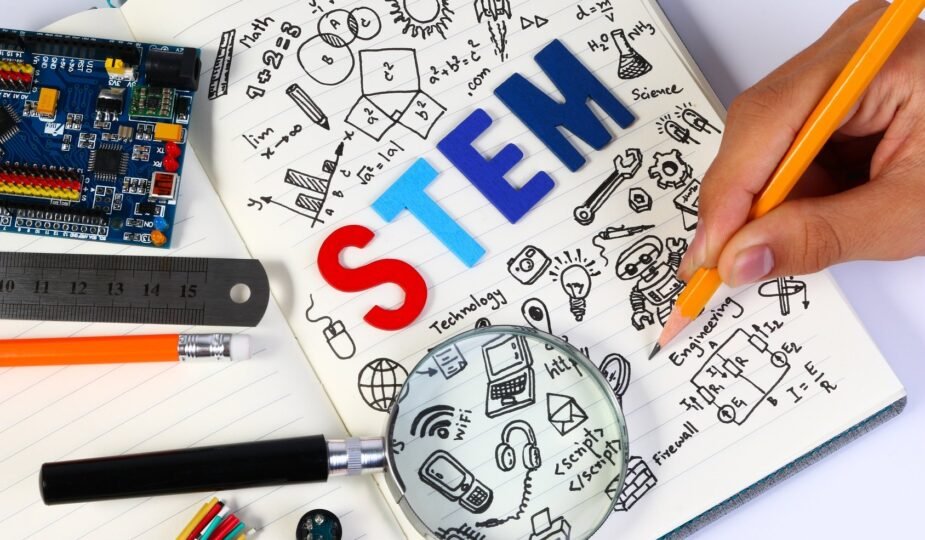
4 Tips for College Students to Excel in STEM Courses
Science, Technology, Engineering, and Mathematics (STEM) subjects have become increasingly important in today’s world as they form the backbone of modern society. As a result, the demand for professionals in STEM fields continues to rise, and students who pursue careers in these areas are likely to have a bright future.
With the growing demand, government bodies around the world have constantly worked hard to provide equal opportunities for STEM courses. The significance of STEM education has been acknowledged by the U.S. Department of Education, and it has made considerable investments in this area.
In addition to providing significant funding to numerous programs, the U.S. Department of Education awarded $5.1 million for the College Assistance Migrant Program (CAMP) and $5 million for the Comprehensive Centers Program in 2020. The Department also allocated $185 million for the Education Innovation and Research Program (EIR) at the start of FY 2021.
These investments underscore the growing focus of government bodies to improve access to quality STEM education for students, specifically those from underserved and underrepresented communities.
By implementing the following tips, college students can take advantage of these opportunities and excel in their STEM courses.
Build a Strong Foundation in Math
Mathematics is the foundation of many STEM fields, and it is essential for students to have a strong understanding of math concepts to succeed in these subjects. To build a strong foundation in math, students should focus on mastering the fundamentals, such as algebra, geometry, and trigonometry.
Moreover, students can also benefit from using online resources and math software to supplement their learning. These resources provide additional practice problems, interactive tutorials, and videos that can help students understand math concepts better. They can also seek help from their professors or academic advisors, who can provide guidance on which resources to use.
A study published in the International Journal of STEM Education in October 2022 revealed that students who opt for advanced mathematics, major in physics and computer science in high school, and excel in mathematics or science majors tend to be more successful in STEM fields in higher education. This underscores the significance of building a solid foundation in math and science during secondary school to set students up for success in STEM fields later on.
One effective way to build a strong math foundation is to start early. Students should take math courses as early as possible, and they should continue to take math courses throughout high school and college. By doing so, they will have a solid understanding of math concepts and will be better prepared to tackle the more advanced math courses required for STEM fields.

Seek Out Additional Resources and Support
College students pursuing STEM courses should seek out additional resources and support to excel in their studies. One useful resource is study groups or peer tutoring, which can provide a collaborative learning environment and the opportunity to work through challenging problems with others.
STEM students can also benefit from attending academic workshops or seminars, which offer a more structured approach to learning and can provide opportunities to engage with experts in the field.
Another important resource is the vast array of STEM-related books and online resources available. By reading and exploring these materials, students can deepen their understanding of course topics and gain a more comprehensive view of their field.
For college students who are struggling in their STEM courses, it can be helpful to seek out professional tutoring services. These services can offer personalized support and one-on-one guidance, helping students to overcome obstacles and achieve their academic goals.
Moreover, online platforms present an excellent opportunity for college students who are aspiring for bright careers in STEM fields. These platforms offer a comprehensive library of STEM content, personalized study plans, and adaptive learning techniques. With these platforms, students can track their progress and identify areas where they need improvement, helping them to achieve success in their studies and beyond.
College students pursuing STEM courses can benefit from utilizing online platforms such as Proprep. This sentiment has been echoed by many satisfied users, including Sophia Valencia from the University of California, Los Angeles, who praised Proprep for its effective and engaging approach to learning. Valencia remarked that the courses on the platform are explained thoroughly, giving students confidence that they are receiving high-quality instruction.
Similarly, Marc Nechmad from Rutgers University has also endorsed Proprep as an essential study tool for STEM students. He recommended the platform to anyone looking for extra help outside of the classroom, noting that its personalized study plans and adaptive learning techniques can help students succeed in their coursework.
These testimonials demonstrate that Proprep STEM for college students can be a valuable resource to excel in their STEM courses. By providing personalized study plans, comprehensive course materials, and adaptive learning techniques, platforms like Proprep can help students build their knowledge and skills in a flexible and effective manner.
Embrace Active Learning Strategies
Embracing active learning strategies can greatly benefit college students in STEM courses. Active learning involves engaging with the material through activities such as problem-solving, group discussions, and hands-on experiments.
Attending office hours with professors or teaching assistants is a beneficial active learning technique that enables students to seek clarification on concepts, ask questions, and obtain individualized feedback. Students who attend office hours are more likely to succeed in their courses and achieve higher grades.
Moreover, students can also benefit from joining STEM-related clubs or organizations. These groups provide opportunities for students to engage in hands-on projects, attend conferences and workshops, and network with professionals in their field. By actively participating in these extracurricular activities, students can gain valuable skills and experiences that will help them excel in their STEM courses and beyond.
A recent study published in ACS Publications found a positive outcome of active learning strategies on students engaged in STEM courses. Students who participated in active learning strategies in General Chemistry I courses were found to have brighter outcomes. These strategies also decrease the number of students earning lower grades or withdrawing from the course.
In addition, the implementation of small group activities during class time was found to be effective in bringing down gender disparities in course grades. Both male and female students had better performance in the active learning course, with experienced female students experiencing the maximum benefit.
Practice and Apply Your Knowledge Through Projects and Research
One of the most effective ways for college students to excel in STEM courses is by practicing and applying their knowledge through projects and research. By engaging in hands-on projects and research, students can gain practical experience and develop a deeper understanding of course material. This can be valuable for future coursework and career success.

Working on projects and research can assist students in cultivating essential skills like problem-solving, decision-making, and others, which are in great demand by STEM industry employers. These skills can be difficult to learn in a traditional classroom setting but can be honed through practical application.
In addition, participating in research projects or internships can provide opportunities for networking and mentorship, which can be valuable for students seeking career guidance and professional connections in the STEM field. This can help students stand out in the job market and position themselves for successful careers in STEM.
Lastly, projects and research can be a fun and engaging way for students to apply their knowledge and creativity. This can help students maintain a passion for their field of study and stay motivated throughout their coursework. Overall, practicing and applying knowledge through projects and research can be a highly effective strategy for college students looking to excel in STEM courses.
Conclusion
Excelling in STEM courses can be challenging, but with the right strategies, college students can set themselves up for success.
By prioritizing their coursework, seeking out additional resources and support, attending office hours, and practicing their knowledge through projects and research, students can develop a deeper understanding of the material and gain practical experience that can be valuable in their future careers.
With dedication and hard work, college students can position themselves for successful careers in STEM and make meaningful contributions to the field.









